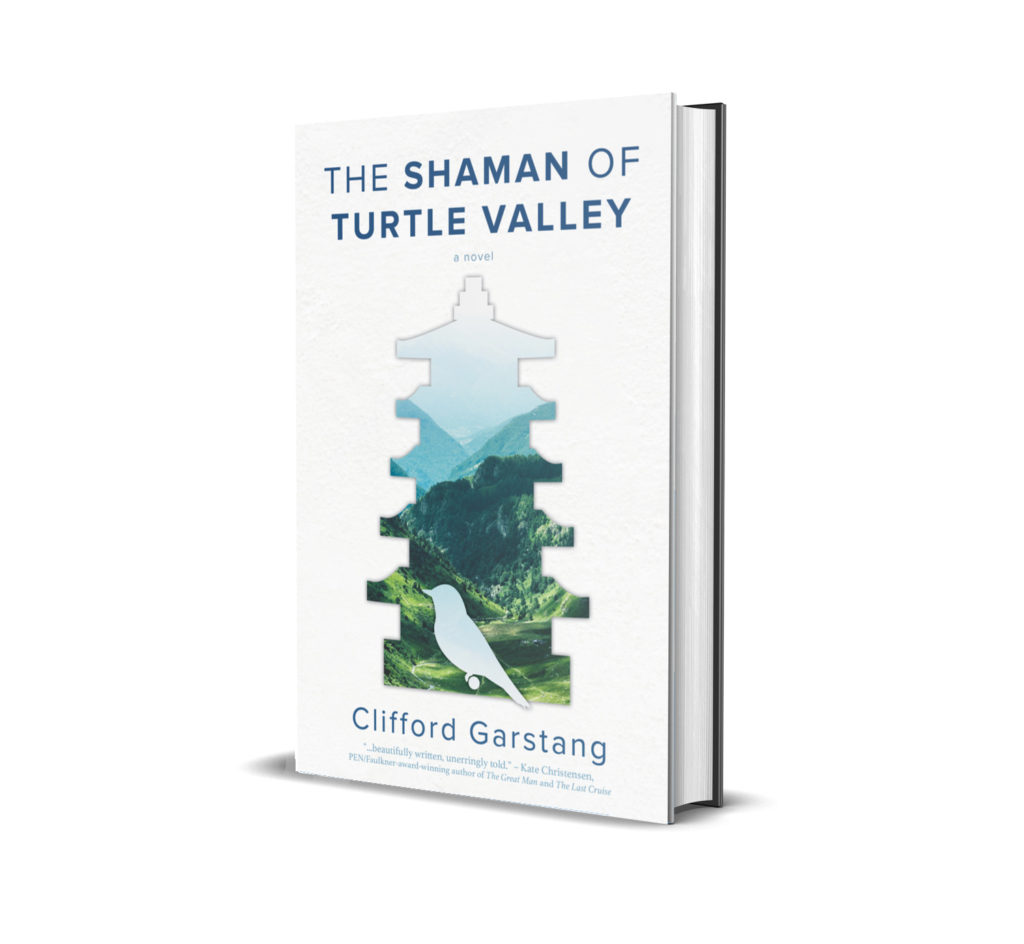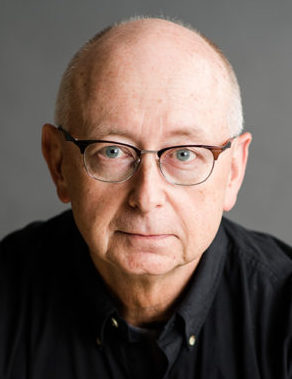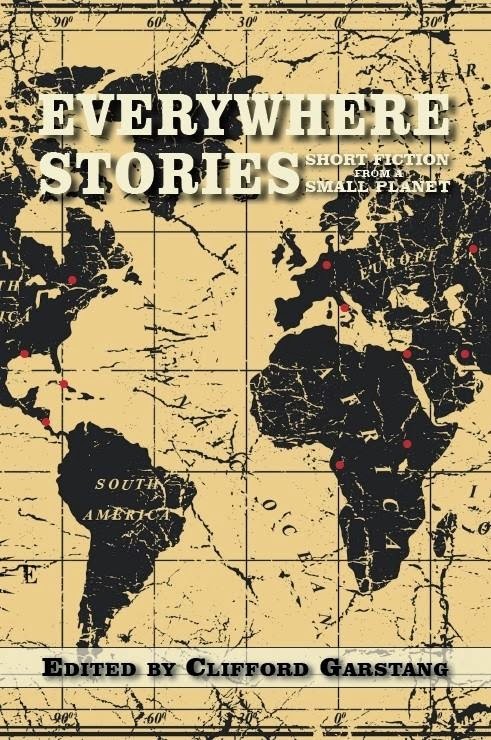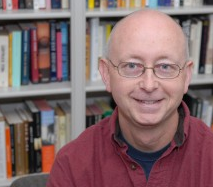
This blog posts on Mondays. Fourth Mondays of the month I devote to a Q & A with a fellow writer.

I found out about Clifford Garstang’s latest, The Shaman of Turtle Valley, when I received his emailed newsletter. (A good writer’s newsletter– that will be the subject, along with a recounting of some of my own infelicitous adventures with mailchimp, of another post, perhaps in 2020.) Suffice to say, I was delighted to hear about Garstang’s new novel, just out from Braddock Avenue Books. I met Garstang some years ago when I was living in Washington DC. While the literary scene there is assuredly not what comes to mind for most people at the mention of the nation’s capital, in fact that scene is substantial, reaching into Virgnia, Maryland and Delaware; highly heterogeneous; attuned to the international; and thriving. Garstang, both as an author and as an editor, is an important part of it.
And by the way, many legions of writers all over the US and elsewhere who write in English also know Garstang for his annual Literary Magazine Rankings, which he publishes in his blog, Perpetual Folly.
His other works include In an Uncharted Country (Press 53), What the Zhang Boys Know (Press 53) (Winner of the Library of Virginia Award for Fiction), and Everywhere Stories: Short Fiction from a Small Planet.
C.M. MAYO: What inspired you to write The Shaman of Turtle Valley?
CLIFFORD GARSTANG: The book has multiple sources of inspiration. First, it’s something of an extension of the stories that appeared in my first collection, In an Uncharted Country, about people who are trying to find a place for themselves in a rural community. Shaman’s main character is a young war veteran who isn’t sure where he belongs, and that story was the original seed for the novel. But because I lived in Korea for a couple of years a long time ago, I have various Korean artifacts in my home, and one of those, a traditional Korean folk painting of a figure known as Sansin, or the Mountain God, got me to thinking of the similarities and differences between rural Korea and rural Virginia. What would happen, I wondered, if a Korean shaman—invariably a woman—encountered a traditional Appalachian healer in the mountains of Virginia? The two ideas came together, embraced each other, and grew.
C.M. MAYO: Can you talk about which writers have been the most important influences for you?
CLIFFORD GARSTANG: I have had the great good fortune of studying with some amazing writers in graduate school and at writers’ conferences, and I would say they remain important influences because of what they had in common—a devotion to the sentence. Writers like Elizabeth Strout, Tim O’Brien, Christine Schutt, Peter Ho Davies, Russell Banks, and the late Grace Paley were all very generous with their attention and, I’d like to think, made me a better writer.
C.M. MAYO: Which writers are you reading now?
CLIFFORD GARSTANG: I’m a terribly eclectic reader. I just finished Téa Obreht’s new novel, Inland, and next up would be Karen Russell’s Orange World, Tommy Orange’s There, There, and Richard Russo’s Chances Are. Also, because I just came home from a trip to Prague, I’m going to read Jiri Weil’s Mendelssohn is on the Roof, about the Nazi occupation of that city.
C.M. MAYO: You have been a productive writer for many years. How has the Digital Revolution affected your writing? Specifically, has it become more challenging to stay focused with the siren calls of email, texting, blogs, online newspapers and magazines, social media, and such? If so, do you have some tips and tricks you might be able to share?
CLIFFORD GARSTANG: One of the reasons I often work in coffee shops, despite the inevitable distractions that come with being in a public place, is that it constrains me from goofing off. People see me, I’m supposed to be working, and so I mostly work. At home I’m far more easily distracted, but one thing that does seem to help is sticking to a work schedule every morning, turning off the Internet (or at least Social Media sites), and bringing my focus to bear on the task at hand. I don’t beat myself up if I slip—meditation training teaches us to “begin again”—and I also find it helps to listen to an album (instrumental). After the forty-five or sixty minutes of the music, I allow myself to take a peek at email, or whatever, and then get back to work.
C.M. MAYO: Another question apropos of the Digital Revolution. At what point, if any, were you working on paper? Was working on paper necessary for you, or problematic?
CLIFFORD GARSTANG: Last year, as we were nearing the production phase of the book’s publication, I printed the manuscript out. (I confess that there were times much earlier when I thought the book was nearly done and I did the same thing, only to have the agent or publisher search stall.) I went off to a hideaway and I did my final, final edits on paper. I find this very useful at a late stage. It helps to see the words on the page differently, to spot problems that are more easily ignored when you glide by them on a screen. Then, too, working on paper is another way to focus, to shut out the Internet.
C.M. MAYO: What is the most important piece of advice you would offer to another writer who is just starting out?
CLIFFORD GARSTANG: I would advise patience. Don’t be in such a hurry to finish something or to publish it. Let it sit. Think about it. Revisit the work to see if it still feels right. And don’t let an agent’s or editor’s No deter you or push you into self-publishing prematurely. Keep improving the work and persevere until you find the right publishing opportunity and method for you and the work.
C.M. MAYO: What’s next for you as a writer?
CLIFFORD GARSTANG: I actually have two books “in the can” and set for publication. A new collection of short stories, House of the Ancients and Other Stories, will be published by Press 53 in May of 2020, and a novel, Oliver’s Travels, will be published by Regal House Publishing in Spring 2021. But my current writing project is another novel, this one set in Singapore, where I lived for many years. I’m excited about this book, but I have no idea when it will be done.
Catalog copy for The Shaman of Turtle Valley:
The author of the award-winning What the Zhang Boys Know ( …utterly beautiful and unforgettable Kevin Wilson, author of The Family Fang) now gives us a heart-rending first novel about love, displacement, and the powerful ghosts that haunt so many families. The Alexanders have farmed the land in Turtle Valley for generations, and their family and its history is tied to this mountainous region of Virginia in ways few others can claim. When Gulf War veteran Aiken Alexander brings home a young and pregnant South Korean bride, he hopes at long last to claim his own place in that complicated history coming out from behind the shadow of his tragically killed older brother and taking up a new place in his father’s affections. However, things do not go according to plan. While he loves his young son, his wife, Soon-hee, can’t or won’t adjust to life in America. Her behavior growing stranger and stranger to Aiken’s eyes every day until the marriage reaches a breaking point. When Soon-hee disappears with their son, Aiken’s life and dreams truly fall apart. He loses his job, is compelled to return to the family home, and falls prey to all his worst impulses. It is at this low point that Aiken’s story becomes interwoven with a dubious Alexander family history, one that pitted brother against brother and now cousin against cousin, in a perfect storm of violence and dysfunction. Drawing on Korean beliefs in spirits and shamanism, how Aiken solves these problems both corporeal and spiritual is at the center of this dynamic and beautifully written debut novel.
>>Visit Clifford Garstang at cliffordgarstang.com.
P.S. Check out Clifford Garstang’s guest-blog post for Madam Mayo, Five Favorite Novels About a Dangerous World.
>>More Q & As at Madam Mayo blog here.

Q & A with Ellen Cassedy, Translator of On the Landing by Yenta Mash, Master Chronicler of Exile
Find out more about C.M. Mayo’s books, shorter works, podcasts, and more at www.cmmayo.com.





